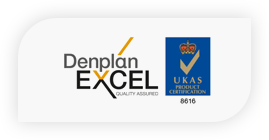The prompt collection of fees is crucial to maintaining cash flow and keeping the practice operational. All members of the dental team are responsible for ensuring that patients are fully informed about the fees that they are likely to pay and when those payments will be due.
This policy describes the practice procedure for advising patients of the fees payable for their dental care and for collecting payments.
Information on fees
We are committed to ensuring that patients are given sufficient information about the costs associated with their care to allow them to make informed decisions. Where changes to treatment are agreed with a patient, we ensure that any cost implications are explained.
An indicative price list of treatments available at the practice is displayed in the waiting room and published on the practice website.
All new patients and patients who are returning to the practice are given information on patient charges and an indicative price list with their new patient pack. The practice information leaflet describes how patients can pay for their care.
Estimates and bills
Before any treatment is undertaken, the treatment options and associated costs are explained in full to the patient in a way that the patient understands. The patient is allowed time to consider the information provided and to ask questions.
A written treatment plan and estimate of the costs are provided for all dental treatment. Details of any fees incurred and payments made are recorded in the patient’s clinical records and checked at each visit. Payments that remain outstanding are also recorded. Where appropriate, patients are given an itemised bill.
Payments
The practice offers patients a range of payment options, including payment by cash, Apple Pay, Google Pay and credit/debit card. Credit/debit card, Apple Pay and Google Pay payments are processed by Barclaycard.
Notices explaining this are displayed in reception and patients are informed of the charge before any payment by credit/debit card is taken.
Our normal policy is to request that patients pay for their treatment on completion. For extensive treatment plans, a 50% deposit may be requested prior to the start of treatment. Patients are reminded about our payment policy when they make an appointment.
For longer courses of treatment, patients may be offered the option to pay for their treatment by instalments. This must be agreed in full by Miss Sharna Allfrey or Mrs Robinson. To comply with consumer credit law, payments will be scheduled for no more than twelve instalments and must be fully paid within 12 months. If a patient has a complaint about a credit arrangement, the practice complaints procedure should be followed. If the complaint cannot be resolved in this way, the patient should be advised of their right to take the matter to the Financial Ombudsman Service.
Whenever a payment is taken, the patient must be given a full itemised and dated receipt.
If a patient offers to pay part of the full cost, the part-payment should be accepted but the patient must be advised that the amount paid is not accepted as full-and-final settlement. The patient should be given a statement showing the original invoice amount and date, the date and amount of the part-payment, and the amount still outstanding.
Outstanding payments
A regular check of the treatments provided against the payments received is undertaken by Miss Sharna Allfrey or Mrs Robinson and reminders sent to patients who have missed payments.
If no payment is received within 8 weeks, a reminder will be sent inviting the patient to contact the practice regarding payment options.
If, following the second reminder, no payment is received, a final reminder letter will be sent and the patient advised that further failure to make a payment may result in the practice instructing a debt collection agency or taking legal proceedings. Details of the agency will be provided to ensure that the patient knows who may contact them at a later date.
If, following the final reminder, no payment is received, Miss Sharna Allfrey or Mrs Robinson will consider how to progress the matter. Action may include the engagement of a reputable debt collection agency or formal legal action. In extreme circumstances and at the sole discretion of Mrs Robinson and Miss Sharna Allfrey the debt may be written off.
The patient will be informed that, for the purposes of collecting the debt, their details may be passed to a third party.




